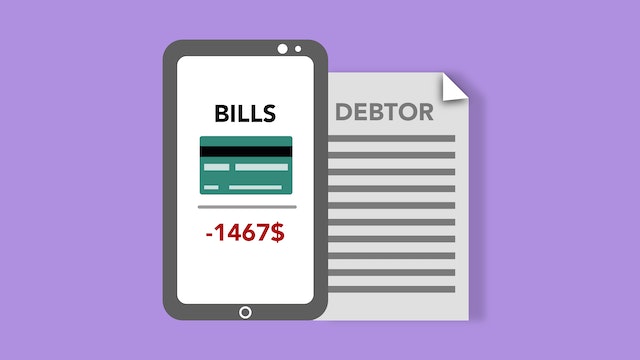
Today, many people manage their finances just fine or at least they’re trying to. The fact that every person has a credit score can greatly impact one’s financial health. As you may already know, credit score determines your creditworthiness in the eyes of lenders and creditors and it portrays how good you are at managing your finances and paying your dues.
That said, there are many factors that can have a profound impact on your credit score but lenders aren’t interested in circumstances, only in numbers that show on your credit report. In other words, even a simple mistake made by financial institutions can ruin your score and you’re the one that has to rectify that mistake.
That’s why people usually decide to opt for credit alert services that will inform them about any issues on their credit report. After all, you can’t spend all of your time checking these reports for any inconsistencies. So with that in mind, here’s why credit protection is important for your financial health.
The benefits of good credit protection practices
Good credit protection practices can help you maintain a good credit score, which is essential for obtaining loans and other financial services when you need them the most. It also helps you avoid costly fees and interest rates that come with bad credit.
Good credit protection practices include regularly checking your credit report to ensure accuracy, paying bills on time, keeping balances low on revolving accounts such as credit cards, while avoiding taking out too many loans or opening too many new accounts at once.
Moreover, it’s important to be aware of any suspicious activity on your accounts and to contact the appropriate authorities if necessary. That said, you can do all of this on your own or have credit protection measures set up to alert you about anything suspicious on your report.
How to dispute errors on your credit report
If you find errors on your credit report, the first step is to contact the credit bureau that issued it. You can do this by mail, phone or online. When you contact them, provide as much information as possible about the error and why you believe it’s incorrect. Be sure to include copies of any documents that support your dispute.
The credit bureau will then investigate your claim and get back to you with their findings usually within 30 days, give or take. If they find that there was an error, they will correct it and notify all three major credit bureaus so that the correction appears on all of your reports.
If they don’t find any errors, they will send you a letter explaining why they didn’t make any changes to your report. In either case, be sure to keep records of all correspondence with the credit bureau in case you need to take further action later on.
What you need to know about credit protection services
Credit protection services are designed to help protect your credit score and financial identity from fraud, theft, and other malicious activities. These services can provide you with a variety of benefits, such as monitoring your credit report for suspicious activity, alerting you when there is a change in your credit score or if someone attempts to open an account in your name.
They can also provide assistance with restoring any lost or stolen funds due to fraudulent activity. Also, some services offer additional features such as identity theft insurance and access to legal advice should you need it. When choosing a credit protection service, make sure that the company is reputable and has been around for a while.
It’s also important to read the fine print of any agreement before signing up for the service so that you know exactly what is covered and what isn’t. Finally, be sure to check out reviews from other customers who have used the service before making your decision.
What steps should I take to monitor my credit regularly?
Monitoring your credit regularly is an important step in protecting yourself from identity theft and other financial issues. The first step you should take is to obtain a copy of your credit report from each of the major credit bureaus. You can do this for free once a year by visiting their websites or by calling them on the phone
Once you have your reports, review them carefully for any errors or signs of fraud. If you find anything suspicious, contact the bureau immediately to dispute it. It’s also a good idea to consider signing up for a credit monitoring service that will alert you if there are any changes to your credit report such as new accounts opened in your name or inquiries made about your credit history.
In most cases, you might forget to check your credit report or history so it’s a good idea to have an automated system that will remind and alert you about any changes in your credit report.
It is important to take steps to protect your credit by monitoring your credit report regularly and taking proactive measures to address any errors or signs of fraud. Doing so can help ensure that you maintain a healthy financial profile and keep your finances in good shape.
Interesting Related Article: “What is an unsecured credit card?“

